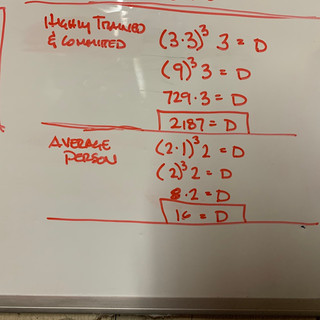An analytical approach to violence
- RedbeardCombatives

- Feb 28, 2020
- 2 min read
Some have asked why an analytical approach to violence. The reason? The same reason we use analytical models in other areas of decision making, to expose human bias based on emotion, optimism and preference. You see we all have a tendency when making predictions to see things in a way that points us toward our preconceived notions. This is inherently dangerous in fields like intelligence when the job is to approach the evidence without preference or bias in the hopes of making predictions that will place you one step ahead of your opponent. As a result intelligence analysts will use many types of predictive models to hold themselves accountable and look at things without perceptions bias.
Looking at your own capabilities and making educated assessments based on predictive models is exactly the same. So you think occasional training, mediocre fitness, and unwillingness to commit to potential acts of violence is all negated by the fact that you carry a firearm? Ok cool, plug it in to the equation that way. Then weigh your opponent, the career criminal, rapist, murderer, or terrorist using the same formula. How did you fare?
Gun guys. You train at high levels of weapons handling but are utterly unfamiliar with interpersonal violence. How does that effect the equation?
Ladies. You don’t want to partake in violent training and are otherwise not prepared to commit to a level of violence on par with what your opponent is committed to perpetrating. How does that effect your likelihood of survivability?
Predictive models do not demonstrate an exactness of an outcome but they do serve to keep us grounded in reality based on our realistic capabilities and allow us to make educated, unbiased predictions on likely outcomes without prejudice.
The question is... are you going to like what you’ve found?





This is very enlightening, provided we are honest with ourselves about our capabilities. I have seen a fair amount of students (exclusively male) that have carried for years but have no realistic training whatsoever. These are the folks that see the firearm as a lucky charm that will solve all their problems. They won’t train, won’t compete, and are happy to feel secure in their misunderstandings. This equation you’ve provided is an eye opener...there’s work to do yet!